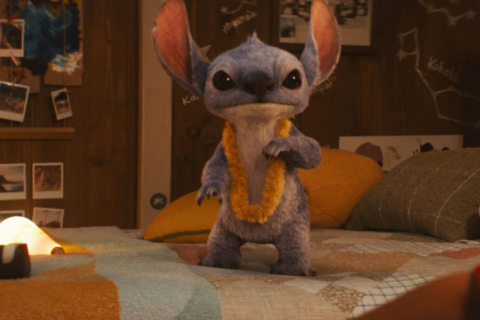(CNN) — Academy Award winners will likely thank their entourage, their family and God on Sunday for receiving Hollywood’s highest honor, but they might owe their biggest debt to the studios that footed the bill for their pricey Oscars campaigns.
Variety reported last month that campaigns for films looking to nab an Oscar nomination in multiple categories can cost $20 million to $30 million. That may seem like a steep price for an eight-and-a-half-pound statue, but winning — or just being nominated — can change a studio’s fortune overnight. An Oscar can bring prestige to small studios like A24 and major studios like Disney can show they don’t just produce blockbusters — they can also win awards. But the battle for an Oscar is no longer just a competition between traditional studios. Tech companies like Netflix and Amazon have swooped in in recent years to give them a run for their money.
“Everybody has a different agenda for why they want to be in contention,” Kyle Buchanan, the New York Times’ awards reporter, told CNN Business. “Whether it’s shoring up someone’s reputation or if you’re a studio executive trying to lure more people to work with you because you’ve proven that you can create something that is recognized by the pinnacle of this industry.”
Why Netflix wants to win
Netflix, with its outsider status, has been chided for its attempts to disrupt the rules and established order of the movie industry.
Now, Netflix is once again inserting itself into a game played by big studios like Disney and Warner Bros. by spending a reported $25 million to $30 million on a campaign for its Best Picture contender, “Roma.” The streaming giant is already the talk of Hollywood and it’s one of the most dominant media companies on Earth, so why does Netflix need to do this?
Well, like any studio, Netflix can use an Oscar haul to court talent, which it needs in order to create exclusive content for subscribers. In addition to Best Picture, “Roma” is a contender for Best Director, Best Actress and Best Supporting Actress.
“Alfonso Cuarón, who directed ‘Roma,’ has directed some of the biggest movies in Hollywood. The third Harry Potter movie, ‘Gravity,'” Buchanan said. “And so, what Netflix is hoping is that if they can give him this wonderful launch for “Roma”, that he will continue to make movies there and Netflix can sort of tighten its grip on this industry.” Cuarón took home the Best Director Oscar for “Gravity” in 2014.
But there’s another reason why Netflix wants to win: It’s “eager to disrupt any industry it can get its hands on,” according to Buchanan.
Netflix has been trying to change the very idea of how audiences watch movies by releasing its films on its service at the same time they are in theaters, or by forgoing the theatrical release completely. The move has angered the industry and theater owners, whose business depends on box office and concession sales.
Amazon, on the other hand, has been able to enter the Oscars race without much controversy, largely because it’s been willing to play by the rules.
It’s done this by giving its Oscar hopefuls a standard 90-day theatrical release before putting acclaimed films like “Manchester by the Sea” on its Prime video service.
But that may soon change. Amazon Studios head Jennifer Salke signaled recently that the studio has plans to look at a “variety of windows” to release its films going forward.
An Oscar could be a game-changer for Netflix and ultimately for Hollywood because if the company “can penetrate this race, there’s really nothing that Netflix can’t do,” according to Buchanan.
“They want to change the way you see a movie,” he said. “And if they can get Oscar to validate that, then they’ve gotten almost all the way there.”
Why a small studio wants to win
An Oscar contender can also boost a studio’s bottom line. The headlines garnered from a nomination or a win means a movie has legs long after it has left theaters, according to Dana Polan, a professor in the Department of Cinema Studies at New York University.
“A film that wins can always be talked about as the ‘Oscar winning such and such,'” Polan told CNN Business. “In today’s Hollywood, a film doesn’t simply exist in its first run. It’ll exist as a DVD, as a streaming release, and so on. All of that will likely include the mention of the Oscar.”
Oscar publicity is vital to studios such as A24, which specialize in smaller, low-budget prestige films such as Best Picture winner, “Moonlight.” A nomination or a win can result in a sizable box office bump.
For example, the theater count for Fox Searchlight’s “The Favourite” went up by a 1,000 the weekend after it was nominated for Best Picture. That led to a box office bump of 212% over the weekend prior, according to Comscore.
“The Shape of Water,” which went on to win Best Picture last year, had a 171% spike in box office revenue the weekend after it was nominated.
That windfall may not have materialized if those films weren’t nominated, according to Jeff Bock, a senior box-office analyst at Exhibitor Relations, an entertainment research company.
“Case in point, look at ‘Eighth Grade.’ It wasn’t nominated and now it’s kind of gone,” Bock told CNN Business. “If these smaller studios don’t get a nomination it can be the end of the line for some of these titles.” With a 99% score on review site Rotten Tomatoes, the critically acclaimed coming-of-age film made $13 million at the box office.
Why a big studio wants to win
But what about Disney or Warner Bros.? “Black Panther” and “A Star Is Born” made $1.3 billion and $423 million worldwide, respectively, so it’s not like those studios need the extra attention that a Best Picture nomination can bring. Isn’t the money enough a reward?
Not for the people making the films, according to Buchanan.
“The people who work on these movies, by and large, are artists who want to be appreciated as artists by other artists in town,” he said. “When they are in contention for an Oscar, it means something deeper. It satisfies them in a way that money can’t.”
For big studios, it’s also about showing a major star like Bradley Cooper that you can have it both ways at Warner Bros. It signals to other A-list actors that they can star in a billion-dollar franchise like “The Hangover” as well as make a passion project like “A Star Is Born” to win awards.
In other words, it’s less about the box office bump and more about poaching and retaining talent.
“Warner Brothers wants to keep Bradley Cooper, who just had this incredibly auspicious directorial debut, in the fold,” Buchanan said. “And if they get those Oscars, then it’s bragging rights for them.”







